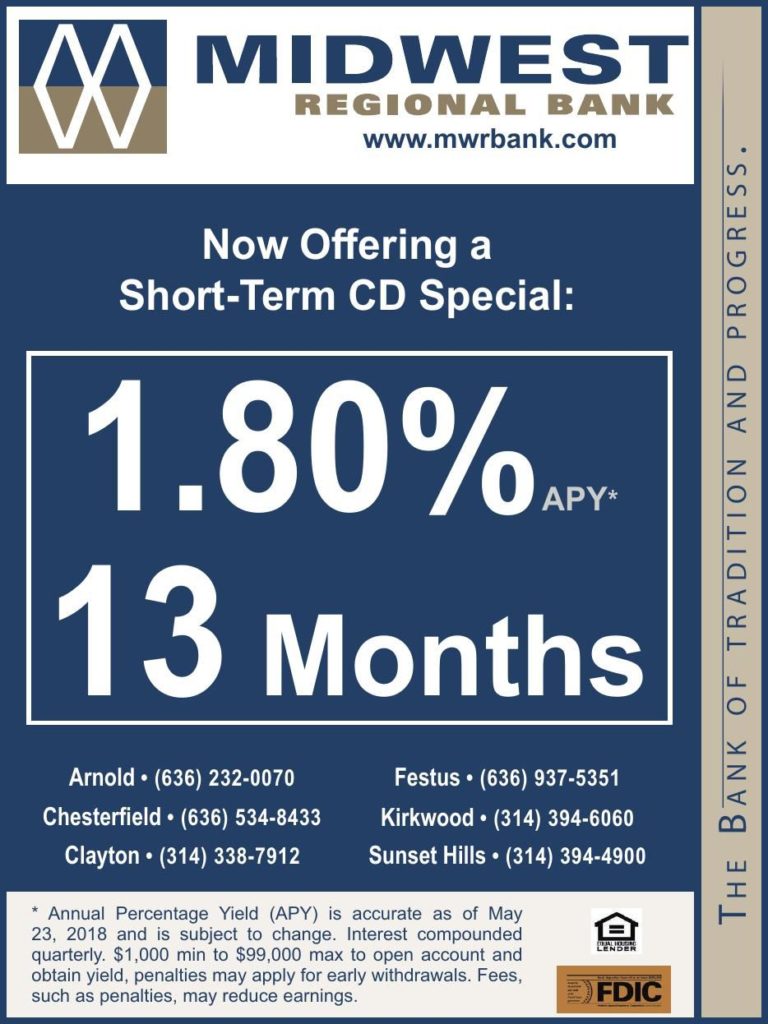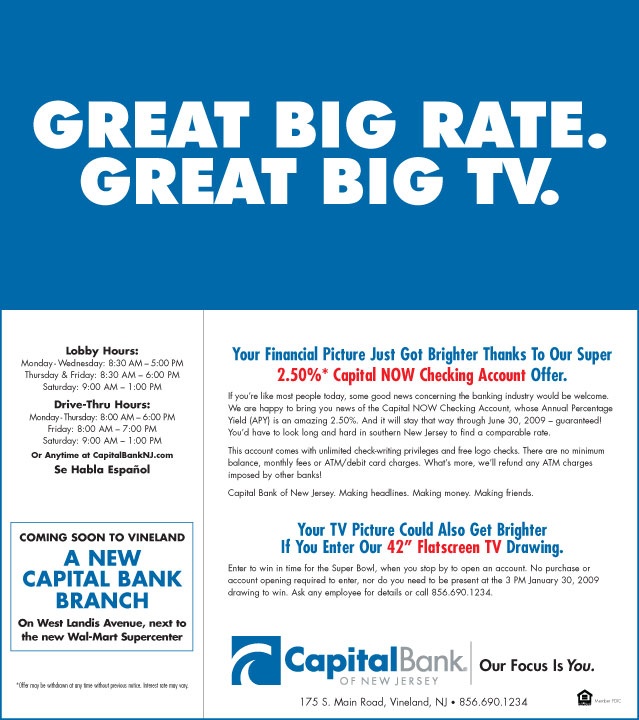Home » Posts tagged 'finance'
Tag Archives: finance
The Essential Guide to Travel Insurance: What Every Traveler Needs to Know
Planning your next adventure is an exhilarating experience, filled with dreams of new destinations, cultural experiences, and unforgettable memories. Amidst the excitement, one crucial aspect that every traveler should consider is travel insurance. In this essential guide, we’ll explain everything you need to know about travel insurance, from its benefits to choosing the right coverage for your journey.
Understanding Travel Insurance: Why It’s Important

Travel insurance is your safety net, providing financial protection and peace of mind during your travels. It covers a range of unforeseen events, such as trip cancellations, long delays to the point where playing the castigates crossword clue is needed, medical emergencies, lost baggage, and more. While no one likes to think about worst-case scenarios, having travel insurance ensures that you’re prepared for the unexpected, allowing you to focus on enjoying your trip without worries.
Types of Coverage: Tailoring Insurance to Your Needs
There are several types of travel insurance to consider, each offering specific coverage based on your travel plans:
- Trip Cancellation/Interruption Insurance: Protects your investment in case you need to cancel or cut short your trip due to covered reasons such as illness, injury, or unforeseen events.
- Medical Coverage: This covers medical expenses, including hospital stays, doctor visits, and emergency medical evacuation. It is especially important when traveling abroad, where healthcare costs can be high.
- Baggage and Personal Belongings: Reimburses you for lost, stolen, or damaged luggage and personal items during your trip.
- Travel Delay: Provides coverage for additional expenses incurred due to flight delays, such as accommodation and meals.
- Emergency Assistance: This company offers 24/7 support and assistance services, including medical referrals, travel arrangements, and translation services.
Choosing the Right Policy: Tips for Travelers

When selecting a travel insurance policy, consider the following factors to ensure you get the coverage that meets your needs:
- Coverage Limits: Review the coverage limits for each type of insurance and ensure they align with the potential costs you may incur during your trip.
- Exclusions: Understand what is not covered by your policy, such as pre-existing medical conditions, extreme sports activities, or specific destinations with travel advisories.
- Add-Ons: Some insurance policies offer optional add-ons like rental car coverage, adventure sports coverage, or cancel-for-any-reason coverage. Assess if these additions are necessary for your trip.
- Read the Fine Print: Take the time to read and understand the policy wording, including terms, conditions, and exclusions. Clear comprehension of your coverage will prevent misunderstandings later on.
- Compare Quotes: Shop around and compare quotes from different insurance providers to find the best value for your coverage needs. Consider factors like price, coverage limits, and customer reviews.
Travel insurance is a vital investment that ensures you can explore the world with confidence and peace of mind. By understanding the types of coverage available, tailoring your policy to your specific needs, and choosing a reputable insurance provider, you’re not just protecting your trip; you’re safeguarding your travel experiences and memories.…
Navigating the Financial Landscape of Film Documentaries
Creating a compelling documentary film involves more than just capturing captivating footage and telling a compelling story. If you desire to achieve the same results as Jon Foy with resurrect dead on jupiter, you’ll need to consider investing in the project. Behind the scenes, filmmakers must navigate a complex financial landscape to secure funding, manage budgets, and ensure the successful production and distribution of their projects. In this guide, we’ll explore the key financial requirements for producing a film documentary, offering insights and tips to help filmmakers navigate the financial aspects of their projects effectively.
Pre-Production Expenses

The journey of creating a documentary begins long before the cameras start rolling. During the pre-production phase, filmmakers incur various expenses related to research, development, and planning. This includes costs associated with conducting interviews, obtaining archival footage, securing rights and permissions, hiring crew members, and scouting locations. Budgeting for pre-production expenses is essential to ensure that filmmakers have the resources they need to lay the groundwork for their film and set the stage for a successful production.
Production Costs
Production expenses account for the bulk of a documentary film’s budget. This includes costs related to equipment rentals, travel and accommodation, filming permits, insurance, and catering. Filmmakers must also budget for the salaries and wages of their production team, including directors, producers, cinematographers, and sound engineers. Additionally, unexpected expenses may arise during production, such as weather delays, equipment malfunctions, or last-minute changes to the filming schedule, so it’s essential to have contingency funds set aside to address unforeseen challenges.
Post-Production Expenses
Once filming is complete, the focus shifts to post-production, where raw footage is edited, sound is mixed, and visual effects are added to bring the documentary to life. Post-production expenses include costs associated with editing software and equipment, hiring editors and post-production crew, color grading, sound design, and music licensing. Filmmakers may also need to budget for expenses related to marketing materials, promotional screenings, and film festival submissions to promote their documentaries and attract audiences.
Distribution and Marketing Costs

Once the documentary is complete, filmmakers must navigate the distribution landscape to bring their film to audiences. This may involve securing distribution deals with streaming platforms, television networks, or film distributors or self-distributing the film through theatrical releases, DVD sales, or online platforms. Distribution and marketing costs include expenses related to advertising, public relations, film festival participation, and screenings. Filmmakers must develop a comprehensive distribution and marketing strategy and allocate resources accordingly to maximize the reach and impact of their documentaries.
Legal and Administrative Expenses
Throughout the production process, filmmakers must navigate various legal and administrative requirements to protect their rights and ensure compliance with industry regulations. This includes costs associated with obtaining legal counsel, drafting contracts and agreements, securing rights and clearances for music and archival footage, and obtaining errors and omissions insurance. Filmmakers must also budget for administrative expenses, such as accounting, payroll services, and film festival submissions, to ensure that their documentary is produced and distributed legally, soundly, and professionally.
Creating a documentary film is a multifaceted endeavor that requires careful planning, resource management, and financial acumen. By understanding the financial requirements associated with each stage of the production process and developing a comprehensive budget that accounts for all expenses, filmmakers can set themselves up for success and ensure the successful realization of their vision. While producing a documentary film may be a challenging and costly undertaking, the potential to inform, inspire, and impact audiences makes it a worthy investment for filmmakers passionate about storytelling and social change.…
Evaluating Financial Products: Choosing the Right Bank Accounts and Credit Cards
In the ever-evolving landscape of personal finance, selecting the right bank accounts and credit cards can significantly impact your financial well-being. With many options available, it’s essential to evaluate financial products wisely. For instance, holiday loans with no credit check can be tempting, but they often come with high interest rates and hidden fees. In this guide, we’ll discuss evaluating and choosing the best bank accounts and credit cards for your needs.
Bank Accounts

Bank accounts are a fundamental tool for managing your money, allowing you to store and access your funds safely. When selecting a bank account, there are several factors to consider. Most people prioritize convenience, fees, and interest rates. Convenience is essential because you’ll want to access your money easily. Consider the bank’s location and ATM network to ensure you can withdraw cash or make deposits without incurring extra costs. Online banking features such as bill payments and mobile check deposits are also vital for added convenience. Fees can significantly impact the value of a bank account. Some common fees include monthly maintenance, ATM, overdraft, and foreign transaction fees. Review the fee structure of potential bank accounts to understand what charges you may incur and how much they’ll cost.
Account Types
The two primary types of bank accounts are checking and savings accounts. Checking accounts typically offer convenient features such as debit cards, online banking, and bill payment options. These accounts are ideal for daily transactions and bill payments. Savings accounts, on the other hand, offer higher interest rates but have limited access to funds. They’re suitable for saving money you don’t need to access regularly, such as emergency funds or long-term savings.
Credit Cards

Credit cards can be valuable financial tools when used responsibly. They allow you to make purchases without immediately paying for them and offer rewards such as cashback or travel points. Consider the interest rate, annual fees, and reward programs when evaluating credit cards. The interest rate is crucial because it determines how much you’ll pay in interest if you carry a balance on your card. Annual fees are charges that some credit cards have for using their services and can range from $0 to several hundred dollars per year. Reward programs vary widely, so choose one that aligns with your spending habits and goals.
Most people prioritize either low-interest rates or rewards when choosing a credit card. If you carry a balance on your card, consider applying for a card with a low-interest rate. On the other hand, if you pay your bill in full each month, focus on finding a reward program that will benefit you most. Some common types of rewards include cashback, travel points, and store rewards. As with bank accounts, review the fees associated with each card to determine which offers the best value for your spending habits.
Importance of Regular Evaluation
Once you’ve selected a bank account or credit card, reviewing and evaluating its performance regularly is essential. As your financial needs and goals may change over time, so too should your choice of financial products. Consider factors such as fees, interest rates, and convenience to ensure that your money is working for you efficiently. Don’t be afraid to switch accounts or credit cards if you find a better option that aligns with your current financial situation. Regular evaluation can help you save money and make the most out of your finances.
Evaluating financial products might seem daunting, but with a thoughtful approach, you can make choices that align with your financial goals. By understanding your needs, assessing your spending habits, and considering the features of different bank accounts and credit cards, you can navigate the financial maze confidently. Remember, the right financial products can be powerful tools on your journey toward financial success.…
The Economic Psychology of Buying and Selling Fire-Damaged Homes
Many people actually find buying and selling fire-damaged homes quite profitable. Buying or selling a fire damaged home is not without financial strategic planning. But have you ever wondered how they perceive the value and risks associated with purchasing a property that has been affected by fire?
That said, the process of buying and selling these homes is not without its challenges. In order to be successful in this market, it is important to understand the economic psychology behind the decision-making process of buyers and sellers. In the following article, we will discuss everything you need to know about buying and selling fire-damaged homes.
Perceived Risk and Value

The extent of the damage, structural integrity, and potential hidden issues can all contribute to perceived risk. Buyers may worry about the safety of the property or the possibility of lingering smoke or water damage. On the other hand, these properties often come with such a lower price tag compared to their undamaged counterparts.
This affordability factor can be enticing for buyers looking for a bargain or those who have limited budgets. However, this perceived value must be weighed against any additional costs that may arise from necessary repairs or renovations. Buyers also need to consider their tolerance for uncertainty when evaluating the perceived risk versus value proposition. Some individuals might feel comfortable taking on a project and investing in repairs themselves. Others may prefer move-in ready homes without any uncertainties looming over them.
Emotional Impact of Fire Damage
For homeowners who have experienced a fire, there is often a sense of loss and grief. Their once beloved home has been transformed into a shell of its former self. Memories are attached to every corner, making it difficult to let go. Sellers may feel overwhelmed by feelings of guilt or sadness as they navigate the process of selling their damaged property. On the flip side, buyers may be hesitant about purchasing a fire-damaged home due to concerns about safety and potential hidden issues. They might worry about lingering smoke odor or unseen structural damage that could cost them repairs down the line.
Potential for Bargaining
 When it comes to buying and selling fire-damaged homes, one aspect that cannot be overlooked is the potential for bargaining. Fire damage can significantly reduce the value of a property, making it an attractive option for those looking to strike a deal. Buyers who are willing to take on the challenge of renovating a fire-damaged home often see the potential in turning it into their dream space. They understand that with some time and investment, they can transform what was once damaged into something beautiful. This understanding puts buyers in a unique position to negotiate on price. Sellers may be more pushed to sell quickly due to the stigma attached to fire-damaged properties and, therefore, may be open to accepting lower offers.
When it comes to buying and selling fire-damaged homes, one aspect that cannot be overlooked is the potential for bargaining. Fire damage can significantly reduce the value of a property, making it an attractive option for those looking to strike a deal. Buyers who are willing to take on the challenge of renovating a fire-damaged home often see the potential in turning it into their dream space. They understand that with some time and investment, they can transform what was once damaged into something beautiful. This understanding puts buyers in a unique position to negotiate on price. Sellers may be more pushed to sell quickly due to the stigma attached to fire-damaged properties and, therefore, may be open to accepting lower offers.
Future Concerns and Resale Value
One of the main concerns for buyers is whether they will be able to recoup their investment when they decide to sell in the future. Fire damage can significantly impact a home’s resale value, as potential buyers may perceive it as a risky purchase. They may worry about hidden structural issues or lingering smoke odors that could affect their quality of life or make it difficult to resell later on. The location of the property also plays a crucial role in determining its future prospects.
Buying or selling a fire-damaged home requires careful consideration of financial implications alongside emotional factors. It is crucial for sellers to present their damaged properties in the best possible light while being transparent about their history. Similarly, buyers must conduct thorough inspections before committing to a purchase.…
Best Strategies to Purchase an Ideal Private Health Insurance Plan
There are a lot of things to think about when purchasing private health insurance. Do you want to go with a big company or a smaller one? What kind of plan do you need? How much can you afford to spend? It can be challenging to purchase private health insurance, but with the right strategies in place, you can find an ideal plan that meets your needs. Health insurance plans vary but make sure you purchase the right one. In this blog post, we will discuss some of the best strategies for purchasing private insurance so that you can make an informed decision and get the best coverage possible.
Make a List of What You Need in a Plan
 When purchasing the best health insurance plan for you, the first step to purchasing private health insurance is to make a list of what you need in a plan. Do you need coverage for prescriptions? How about dental and vision? What about mental health services? Once you know what you need, you can start shopping around for plans that offer your desired coverage. Some people may also want to consider things like co-pays and deductibles when making their decision.
When purchasing the best health insurance plan for you, the first step to purchasing private health insurance is to make a list of what you need in a plan. Do you need coverage for prescriptions? How about dental and vision? What about mental health services? Once you know what you need, you can start shopping around for plans that offer your desired coverage. Some people may also want to consider things like co-pays and deductibles when making their decision.
Think of Your Budget
Even though having health insurance is essential, you must also consider your budget when making a purchase. How much can you afford to spend each month on premiums? What about out-of-pocket costs? Once you have an idea of your budget, you can start looking at plans that fit within your price range. It’s essential to find a plan you can afford so that you’re not struggling to make monthly payments. So be sure to include the plan’s cost in your decision-making process.
Compare Rates and Benefits
Health insurance companies offer different rates and benefits, so it’s important to compare them before purchasing. What works for one person may not work for another, so finding a plan that meets your specific needs is essential. Make sure to compare the rates of different companies and the benefits they offer before making a decision. By doing your research, you can be sure to find the best possible plan for you.
Read the Fine Print Before Signing
 On top of that, it’s important to read the fine print before signing up for a health insurance plan. This way, you’ll know exactly what you’re getting into and won’t be surprised by anything later on. Make sure to understand the terms of your plan before agreeing to anything to ensure you’re getting the best possible coverage.
On top of that, it’s important to read the fine print before signing up for a health insurance plan. This way, you’ll know exactly what you’re getting into and won’t be surprised by anything later on. Make sure to understand the terms of your plan before agreeing to anything to ensure you’re getting the best possible coverage.
By following these steps, you can be sure to find the best possible health insurance plan for you. Purchasing private health insurance can be complicated, but it’s best to ensure you have the coverage you need. By taking the time to compare rates and benefits, as well as reading the fine print, you can find a plan that meets your needs and budget. So don’t wait. Start shopping around for the best possible health insurance plan today.…
Pros of Working With a Mortgage Broker
Suppose you read this post. Congratulations! I assume you’ve planned to buy a new home. It’s a good idea to finance your home by applying for a mortgage. However, it’s getting much more complicated to apply for the best mortgage for you in today’s world. So, to make your life a lot easier, you need to hire one of the best professional mortgage brokers. This post will explain why you need to hire a mortgage broker and the benefits of hiring an experienced broker. Read on.
Promotes Convenience
 As mentioned, the main goal of hiring a mortgage broker is to make your life a whole lot easier when applying for a mortgage. So, they offer complete service and dedication to help you get the best mortgage for you.
As mentioned, the main goal of hiring a mortgage broker is to make your life a whole lot easier when applying for a mortgage. So, they offer complete service and dedication to help you get the best mortgage for you.
It means you can rest assured knowing that the broker can find the best mortgage, prepare all necessary paperwork, set a schedule, and negotiate to qualify for a mortgage. Aside from that, they are highly flexible people who can help you at any time.
Completes the Legal Work
A mortgage broker is also a highly competent person in handling any legal work. They can do all the legal work for you to get the best loan possible for your next property. This responsibility includes the loan application, necessary documents for the bank, and all the negotiations. You can choose to go through this process alone, but hiring a professional mortgage broker can prevent you from dealing with a complicated process.
Saves a Lot of Time
One of the best reasons you need to hire a mortgage broker is that you can make the whole process quick and easy. The mortgage brokers are professionals regarding how your preferred bank and lender operate, along with the criteria you must meet. These criteria will lead you to get applied for the mortgage. However, make sure to hire an experienced person that can ensure success in your mortgage application.
Increases the Chance of Getting Pre-Qualified
 As we know, you have two potential outcomes when you decide to apply for a mortgage. It’s either getting approved or getting rejected. The banks or lenders always put a mark on your credit score whenever your application has got denied. It’s when the mortgage broker comes in handy. They are capable of using the latest technology to gain access to the criteria of each bank and make sure you are qualified to apply for the mortgage. It’s essential to avoid having any negative marks on your credit score so that you have nothing to worry about when you need to apply for a mortgage later.
As we know, you have two potential outcomes when you decide to apply for a mortgage. It’s either getting approved or getting rejected. The banks or lenders always put a mark on your credit score whenever your application has got denied. It’s when the mortgage broker comes in handy. They are capable of using the latest technology to gain access to the criteria of each bank and make sure you are qualified to apply for the mortgage. It’s essential to avoid having any negative marks on your credit score so that you have nothing to worry about when you need to apply for a mortgage later.
To sum up, a mortgage application process can be super hectic and complicated. So, if you want to make your life easier, you need to hire a professional mortgage broker. If you do, you can enjoy a lot of benefits, and rest assured you’ll get approved for the mortgage. However, it’s essential to hire a professional mortgage broker that has a legitimate license and certificate. Also, ensure you know that the broker is reliable and trustworthy. Thus, you can get your mortgage with no issues.…
Mistakes People Make When Getting a Loan
Sure, it can be exciting walking into a lender’s office and walking out with a chunk of cash in your account. You might also have a rough idea of what you want to do with your 2nd chance loan. Perhaps you have a well-thought-out plan down to the details. Whichever side of the divide you fall on, there are mistakes that you definitely should avoid when getting a loan. Some of these mistakes are made by right about anyone. For this reason, read on for more on mistakes people make when getting a loan.
Not Working on Your Credit Score
 Do you know your credit score? Are there ways you can perhaps improve on it? Almost all lenders count on your credit score to know how much to give you.
Do you know your credit score? Are there ways you can perhaps improve on it? Almost all lenders count on your credit score to know how much to give you.
You might have an excellent business plan, but you might not be approved if your credit score is low. There are many facilities out there that can let you know what you need to work on. You can even have them synced with your phone, so you get regular reports on what you need to work on.
Not Consulting a Financial Advisor
Sure, getting a loan is not entirely a complex matter. However, to make sure you do not fall into any traps, look for a financial advisor. They will tell you when you are being ripped off and which other funding you can go for. For instance, there is capital funding and equity funding. It all depends on the vehicle you prefer.
Not Fully Disclosing Your Financial Affairs
 To strike the best deal, make sure you have disclosed everything to your potential lender. Do not tie yourself to something you can fulfill. For example, do not overplay your income potential in a bid to get a bigger loan. You might end up tying yourself to something that will frustrate you for a long time. To add to the above, avoid many loan applications at the same time. You might end up being accepted on all of them!
To strike the best deal, make sure you have disclosed everything to your potential lender. Do not tie yourself to something you can fulfill. For example, do not overplay your income potential in a bid to get a bigger loan. You might end up tying yourself to something that will frustrate you for a long time. To add to the above, avoid many loan applications at the same time. You might end up being accepted on all of them!
Conclusion
It can be intimidating and thrilling at the same time when you are getting a loan. Nonetheless, with these things in mind, you are good to go. This article has narrowed down to all the things you should look out for to avoid making mistakes when getting a loan. After all, a loan can sometimes be a huge commitment that binds you for very many years. So, be careful out there!…
Six Reasons to Take a Payday Loan in San Diego
San Diego is a beautiful city filled with many different people and cultures. The downtown area has a lot of entertainment options, and the beaches are perfect for those hot summer days. San Diego also has one of the most expensive housing markets in the country, which means it’s hard to afford living here without some help from payday loans.
There are many reasons you might need a quick cash infusion to make ends meet – home repairs that came up out of nowhere or an unexpected medical bill can quickly lead to financial hardship. Payday loans can be your best option if you’re looking for fast money! Here are the top reasons why you should take one now:
You Want Peace of Mind
 Financial problems can create sleeping troubles and anxiety issues. A payday loan will give you back your peace of mind and allow you to sleep soundly at night, knowing that everything is taken care of on time with no problems or stress!
Financial problems can create sleeping troubles and anxiety issues. A payday loan will give you back your peace of mind and allow you to sleep soundly at night, knowing that everything is taken care of on time with no problems or stress!
You Need a Quick Fix
Sometimes there’s just no way around getting extra money quickly, even if it means going further into debt. A payday loan will give you the money you need right away, and it’s much better to have a quick fix than no solution at all.
You Want to Fix Your Credit Rating
 Getting your finances back on track can be difficult when you’re already struggling with bad credit because of an unexpected payday loan that turned into more trouble than what was intended.
Getting your finances back on track can be difficult when you’re already struggling with bad credit because of an unexpected payday loan that turned into more trouble than what was intended.
A payday loan can help you get back on track and build your credit score up again. It is indeed a good investment to make especially in this difficult time.
You Need to Make an Emergency Purchase
The unexpected happens, but when it does, you must be prepared for the worst with a solid emergency fund! Getting approved for a quick payday loan will allow you to make that purchase without worry or stress.
You Can’t Get a Loan Anywhere Else
There are many reasons why you might not get a traditional loan from a bank, but that doesn’t mean there isn’t another solution. A payday loan is your best option when other sources of cash won’t work out for whatever reason!
It’s Your Only Option
 Sometimes you don’t have a backup plan when it comes to getting extra cash for whatever reason. When you need money ASAP, nothing else will do!
Sometimes you don’t have a backup plan when it comes to getting extra cash for whatever reason. When you need money ASAP, nothing else will do!
Payday loans are your best option in these circumstances, and they’re available 24/hrs a day with no waiting period until approval.
The Bottom Line
As a resident of San Diego, myself, I know how difficult it can be to make ends meet when you’re supporting a family and trying to pay your bills on time each month. Taking out a payday loan is never ideal, but sometimes there’s no other way around the situation! Payday loans will give you peace of mind knowing that everything will get paid and not cause any financial problems.…







